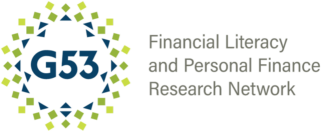Giovanni Gallo and Alessia Sconti
Abstract: Financial vulnerability is a concern of policymakers around the world. The Covid-19 pandemic elevated the financial fragility of households globally, particularly among the most vulnerable populations, and rising inflation is adding a new strain. This paper looks at Italy in examining how a marginal change in a household’s financial literacy level might affect household income (wealth) inequality levels, both at the mean value and along with the distribution. Using data from the 2016 wave of the Bank of Italy Survey of Households Income and Wealth (SHIW), which includes the Big Three questions that are widely used as a measure of financial literacy, we show a noteworthy shift if financial literacy were improved among as few as 10% of the survey respondents. If one of every 10 Italian who had no correct answers on the financial literacy questions in the survey were replaced with respondents reporting two correct answers out of three, the mean value of the household equivalized disposable income would rise by 0.8%, or €160 per year. If one of every 10 respondents reporting no correct answers were replaced by respondents who could answer all three questions correctly, it would jump by +1.5%, or €285 per year. To achieve the same results through lump sum payments to households would cost Italy as much as €7.3 billion annually. Our preliminary cost analysis supports mandatory financial education in schools. Heterogeneous analysis reveals that an increase in financial literacy levels also can engender a reduction of inequality levels among the most vulnerable groups.
